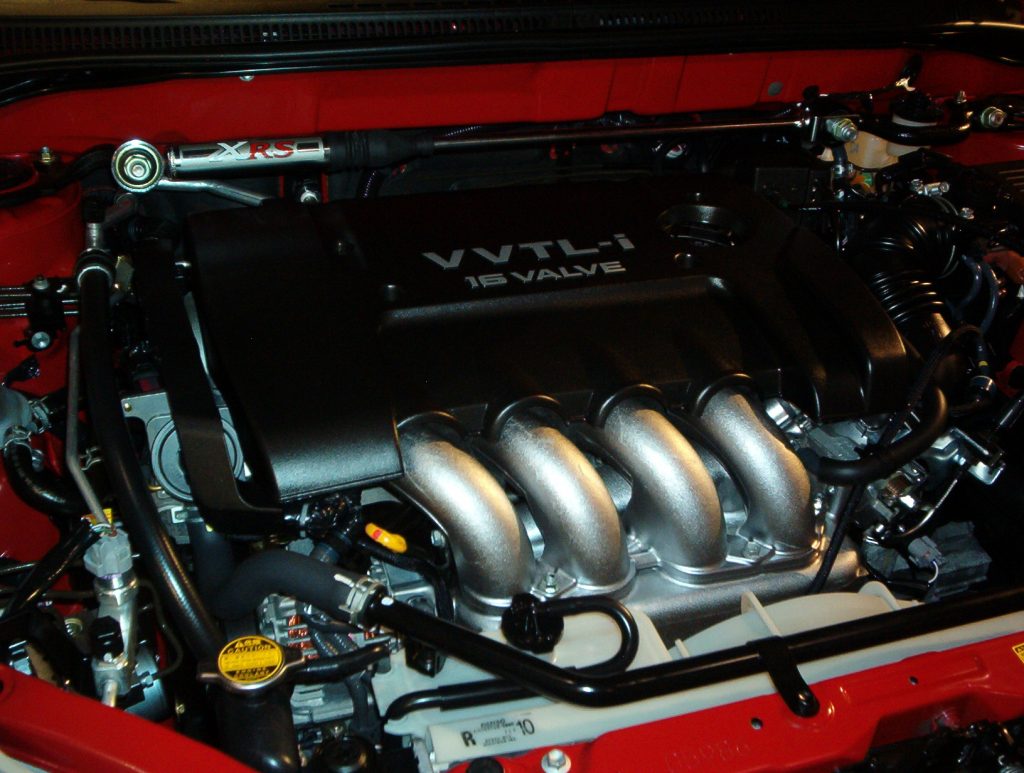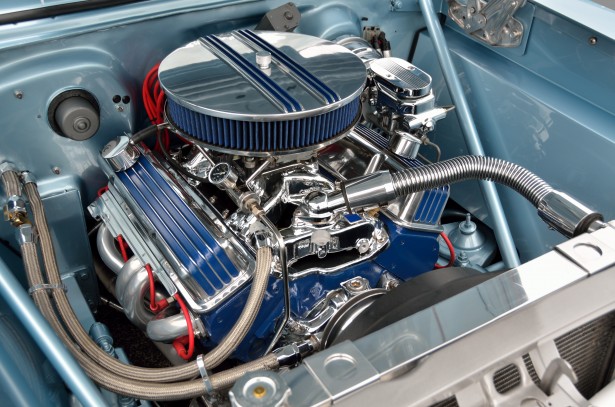Summary
– Gasoline engine: definition
– How a gasoline engine works (technical)
– Gasoline engine: economic criteria
– Other criteria for choosing a gasoline engine
A gasoline engine is an internal combustion engine, with 2 or 4 strokes, using a light fuel: gasoline.
Gasoline engine: definition
The gasoline internal combustion engine refers to many variants of practical achievements. This generic term includes in particular:
– 2-stroke cycle engines;
– 4-stroke cycle engines;
– reciprocating engines;
– rotary engines.
From the single-cylinder to the V12, or even W16, the gasoline engine is a system that can transform the calorific energy in gasoline into mechanical energy used to move a vehicle. Moreover, an engine is always characterized by:
– its torque;
– the maximum power it can provide.
If these 2 characteristics are well linked, they have 2 distinct effects:
– the engine’s torque determines the acceleration in a given gear;
– and the power determines the vehicle’s top speed.
Good to know: here, in our automotive context, a gasoline engine generally induces 4-stroke combustion using valves.
How a gasoline engine works (technical)

Today most gasoline engines have a 4-stroke cycle:
– First stroke: fresh gas intake. The intake valve opens while the piston sucks in the air as it descends like a bicycle pump. With a carburetor or indirect injection, gasoline is first vaporized in the intake area to form a gas mixture. In a direct injection system, the gas is sprayed directly into the cylinder head at the beginning of the next stage (2nd stage below).
– Second stage: compression. When the intake valve has closed, the piston moves up. It powerfully compresses the gas mixture, which is now trapped in the cylinder head.
– Third stage: ignition, combustion, and expansion. When the piston reaches the top dead center (TDC), the spark plug produces a spark whose heat ignites the pre-compressed gas mixture. Combustion can then reach temperatures of over 1,000°C. The resulting increase in pressure pushes the piston to its bottom dead center (BDC), which drives the crankshaft through a half-turn to a connecting rod, which is articulated on two pivots.
– Fourth stroke: exhaust. Still, by rotational inertia, the crankshaft drives the piston from BDC to TDC via the connecting rod. To avoid parasitic compression of the exhaust gases, the valve is opened a little before the BDC to evacuate those gases.
Gasoline engine: economic criteria

Buying a vehicle with a gasoline engine
To maintain a certain commercial appeal, it remains the cheapest to buy to partially compensate for a higher appetite and fuel cost than its larger diesel competitor. If the rates per liter are arbitrary, the frugality of the diesel engine (-20% on average, even more in the city) will always remain.
Cost of running a gasoline engine
The cost is higher for a gasoline engine as it cannot compete with a diesel engine for the same tank capacity of the same car model. To avoid these pitfalls, it may be preferable to choose an LPG model or convert a gasoline engine to LPG.
Maintenance is often less expensive, except in the presence of a turbocharger, direct injection, and advanced pollution control systems. These more sophisticated and more fragile elements (NOx traps) imply more advanced overhaul procedures, and therefore more expensive.
Note: when it comes to insurance, a gasoline-powered vehicle is cheaper unless it is a model with a sporting reputation.
Other criteria for choosing a gasoline engine
Driving pleasure of the gasoline engine
Firstly, the gasoline engine can boast some interesting qualities in driving pleasure, starting with a relatively low and pleasant sound, especially in 6-cylinder cars. The combustion of gasoline is also smoother than that of diesel.
Secondly, it is capable of high revs, which is an advantage when overtaking, for example.
Finally, gasoline engines benefit from a great response to the gas pedal and evident flexibility, if not an absolute brilliance.
The gasoline engine: ideal for short trips!
Economically reduced to small vehicles and low annual mileage, the gasoline engine will be preferred by all those who do not use a personal car too frequently:
– city dwellers within the city limits;
– the elderly;
– people with low purchasing power attracted by the low initial investment.
The gasoline engine and the environmental aspect
Contrary to popular belief, urban journeys will be highly polluting in carbon monoxide and unburned carcinogens. This type of engine is not very emissive in terms of fine particles.
Indeed, unlike particle filters, its catalytic converter needs a high temperature to be effective. The average consumption will inevitably be higher when driving at low speeds in city centers.
Gasoline engine reliability
With regular maintenance, starting with filters and oil changes, a gasoline engine can easily reach and exceed 200,000 km. However, it will not be free of various electronic problems or breakdowns. Its maximum mileage will usually be lower than that of a diesel.

